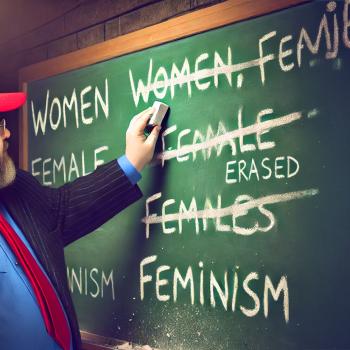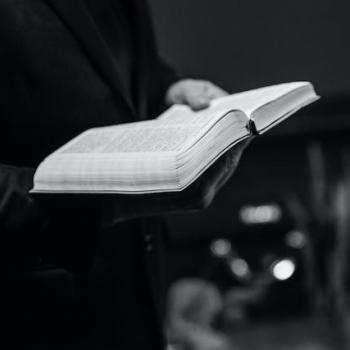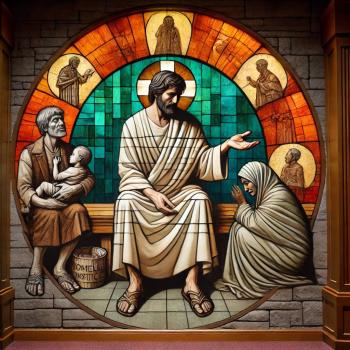Did you know that Mother’s Day originated as a social justice movement and anti-war protest? Did you know there’s an ancient tradition that claims Jesus as Mother? And that Maria Montessori was a single mother who created a revolutionary children’s school, fought for social justice, and was a peace activist?
Watch or listen in to the latest episode of the RavenCast as Suzanne Ross, Lindsey Paris-Lopez, and I discuss the spirituality of Mother’s Day.
MP3
Audio PlayerVideo
Show Notes:
Suzanne reflected on Mary as Mother. Growing up Catholic, Suzanne celebrated Mary as Mother during the month of May. The celebration of Mary was a celebration of motherhood, spring, and the maternal divine presence.
Lindsey discussed Julian of Norwich, who say Jesus as the maternal image of the Trinity. Mother Julian had a great insight into Mother Christ, who painfully birthed a new humanity while on the cross. (For more, see the book, Jesus as Mother.)
Mother’s Day as Nonviolent Protest of War
Julia Ward Howe’s Mother Day Proclamation of 1870 was a post-Civil War call for women to unite for peace and against war.
Before the civil war, Ann Jarvis called for a Mother’s Day of Work, to inspire better sanitation. During the Civil War, Ann Jarvis was a nurse for the North and worked for the end of slavery, but she nursed soldiers from the North and the South. She refused to see the divisions, but worked for the betterment of humanity.
Why Did Primarily Only Women Call for Peace? Where Were the Men?
Men were caught up in the sacrificial institution of war. When humans are in the system of violence, it is hard to see beyond.
Women were outside of the system of war and could see the futility of it.
Men are given an identity based on an honor code that is based on physical strength, power, and domination.
Mother’s, Mimesis, and Babies
Mimetic theory claims that we are dependent upon one another for identity. We see this even before birth, when a baby is totally dependent upon a mother’s body. Even after birth, babies are dependent upon relationship for identity. The most intense relationship is with the mother, for the simple fact that they shared the same body.
Anyone can perform the function for being the primary role for the child, but the mother’s role in birthing comes before everything else.
Maria Montessori, Children, and Power Struggles
Montessori was a peace activist who helped working women. She developed an educational system that helped poor, working mothers teach and care for their children.
Her educational method helped children work through power struggles. Montessori’s method also helps parents manage power struggles with their children in more peaceful and productive ways.
Image: Copyright: photodeti / 123RF Stock Photo
Stay in the loop! Like Teaching Nonviolent Atonement on Facebook!
















